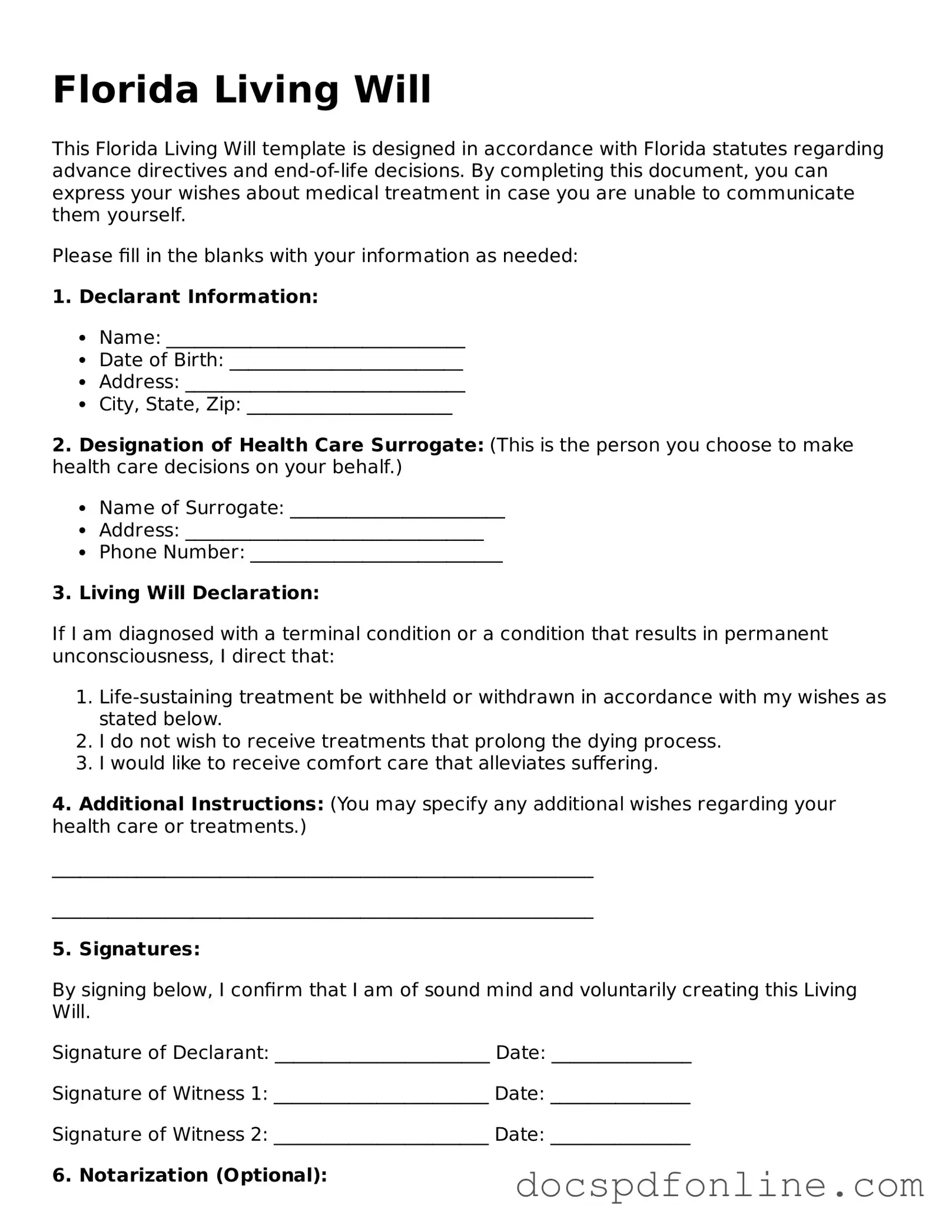Legal Living Will Template for Florida
A Florida Living Will form is a legal document that outlines your wishes regarding medical treatment in the event you become unable to communicate your preferences. This important tool ensures that your healthcare decisions align with your values and desires. By completing a Living Will, you provide clarity and guidance to your loved ones and healthcare providers during difficult times.
Launch Editor Now

Legal Living Will Template for Florida
Launch Editor Now
Save time — finish this form fast
Finish Living Will online — edit, save, download made easy.
Launch Editor Now
or
↓ PDF File
